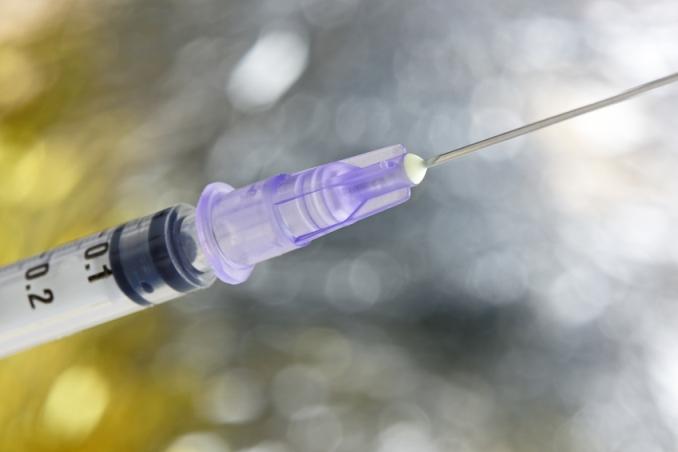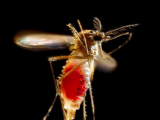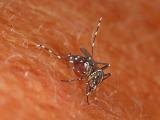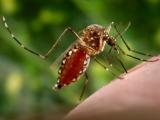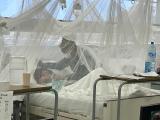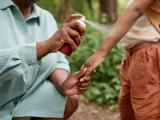"It's happened. We have a vaccine that enhances dengue," said Scott B. Halstead, MD, talking about a phenomenon whereby the dengue vaccine sets up dengue-naive recipients for severe disease.
Halstead, the leading figure in dengue research in the past 50 years, is referring to CYD-TDV (Dengvaxia, Sanofi Pasteur), the first dengue vaccine approved by the World Health Organization in April, and now licensed for use in five countries. When Halstead, a former senior advisor of the Dengue Vaccine Initiative and the founder of Children's Vaccine Initiative, first saw the 3-year results of the vaccine published in the New England Journal of Medicine last summer, he immediately saw a problem in the data.
“It's clear as the nose on my face: Vaccine recipients less than 5 years old had five to seven times more rates of hospitalizations for severe dengue virus than placebo controls."
ADE primes subjects for severe illness
Halstead is describing a problem dengue researchers feared for years; the vaccine appears to cause ADE, or antibody-dependent enhancement. In dengue ADE, which Halstead first identified, infection with one of the four strains of the virus produces antibodies to that strain and cross-reactive antibodies to the other dengue strains.
"Over time, you make and keep protective levels of antibody from the initial infection, but you lose the cross-reactive antibodies," said Halstead. "That allows a second dengue infection to cause severe illness, including dengue hemorrhagic fever."
Halstead said two examples illustrate dengue ADE in action: In 1977, Cubans, a dengue-naive population, were infected with dengue 1. Nearly 20 years later, in 1997, dengue 2 came to the city of Santiago, and hospital rates were eightfold higher in patients previously infected with dengue 1.
"The longer interval [between infection with different dengue strains], the more severe the disease," said Hallstead.
A similar phenomenon is seen in mothers who've had two or more dengue infections. They pass some cross-reactive antibodies to their babies, but no T cells, which are important in immune response. In turn, their children can react much worse to dengue virus.
What Halstead saw in Sanofi's data was the vaccine acting as an initial viral exposure in seronegative subjects (those with low antibody levels in the blood), almost like a mother and baby, leading to ADE in the years following immunization.
"The vaccine is even worse than an infection, because it has all different antibodies that wane over time, and the T cells from yellow fever," Halstead said.
Halstead and Philip K. Russell, MD, PhD, the former director of the Walter Reed Army Institute of Research and commander of the US Army Medical Research and Development Command, as well as founding president and chairman of the Sabin Vaccine Institute, decided to take their findings and publish an article in Vaccine in February.
Using Sanofi Pasteur's data from the phase 3 clinical trials of Dengvaxia, which involved more than 35,000 children in 10 dengue-endemic countries, they showed that, during year 3 of the trial, among children ages 5 years or younger, 54.2% of whom were seronegative on enrollment, the dengue hospitalization rate was significantly higher among vaccinees than controls. The rate was 0.99% for the former (20 of 2,029) and 0.2% for the latter (2 of 1,005), a relative risk of 4.95, which translates into a fivefold risk of hospitalization.
According to Russell, Sanofi Pasteur has failed to directly address this phenomenon.
"What the company has done is say, 'Well, we only vaccinate kids over the age 9,' " said Russell. "But age is only a surrogate here for being dengue naive. They need to directly address ADE in phase 4 studies."
In response to a query about the problem, Susan H. Watkins, senior director of communications with Sanofi Pasteur, said in an e-mail that ADE cannot be inferred from the data.
"No differences in clinical picture or viremia have been observed between vaccinees and controls or between the active and hospital phase. Additional investigations to assess the immunological profile of hospitalized/severe dengue cases (cytokines/chemokines and growth factors) still showed no differences irrespective of phase and age group," she said.
Russell isn't convinced. "In ADE we wouldn't expect to have different clinical presentations or viremia. The fact is they haven't disproved the ADE hypothesis or come up with any good explanation why you have up to relative risk of 5 or 6 [for hospitalization of seronegative children]."
Furthermore, Russell said the serologic status at enrollment of hospitalized children was collected in only 8% to 19% of subjects, which offers an incomplete picture. "They are trying hard [to ignore this,] because they have $2 billion invested in this vaccine," Russell said.
Vincent Racaniello, PhD, a professor of microbiology and immunology at Columbia University in New York City, said he doesn't think Halstead and Russell's article can prove ADE, but it is consistent with such an interpretation.
"I can understand why Sanofi, which has invested huge sums in developing CYD, wants to deny that the vaccine causes ADE," said Racaniello. "However, it would be irresponsible to simply deny that ADE is taking place and go on to vaccinate all people over 9 years of age."
What it means for Zika
At the same time Sanofi Pasteur was rolling out Dengvaxia, a different flavivirus, Zika, started to make headlines. Researchers are now racing to develop a Zika vaccine and trying to tease out how and if ADE influences severe cases of Zika virus and if cross-infection with dengue or other flavivirus enhance the disease.
"Flavivirus is a master at enhancing the immune response; that's why you have ADE," said Scott Michael, PhD. "It’s a game between hosts and virus that's gone on forever."
Michael is professor of biology at Florida Gulf Coast University, where he investigates dengue, Zika, and other flaviviruses. He said there's been a wave of literature published in the last year showing cross-enhancements of disease within the flavivirus family. He co-authored a paper in BioRxiv in April that showed the possibly dangerous interaction between Zika and dengue.
"Our results suggest that pre-existing DENV immunity will enhance ZIKV infection in vivo and may increase disease severity," the authors write. "If ZIKV ADE is fundamentally similar to DENV ADE, it is highly likely that preexisting anti-DENV antibodies will increase ZIKV viremia in humans and lead to more severe disease in vivo."
The authors suggest that this means Zika may transmit more quickly and be more infectious in areas where dengue is endemic.
Michael said rushing to make a Zika vaccine without fully understanding how ADE works could lead to dire consequences. "We desperately need vaccines against both dengue and Zika, and I hope that enthusiasm to get something into use quickly doesn't neglect safety," he said.
Anthony Fauci, MD, director of the National Institute of Allergy and Infectious Diseases, said he's aware of six Zika vaccines in development, and said ADE is always considered when working with flavivirus.
“We haven't seen ADE in vaccines," said Fauci. "I'm not playing it down, I’m aware of it. But I don't think ADE will be a prohibitive problem in Zika vaccines."
But Russell said that the fact that Zika is occurring in areas where dengue has been endemic hints at a serious potential problem with ADE and Zika vaccine development.
"The current epidemic of Zika, which is usually mild disease, is made a lot worse in these populations," Russell said. "I think there's a major effect, but the studies haven't been done yet to sort that out.”
Racaniello said the research on Zika and dengue enhancement puts Dengevaxia in an even harsher light, "Given the recent observation that antibodies to dengue virus enhance Zika virus infection, one must also wonder if immunization with CYD [Dengvaxia] can lead to worse Zika virus disease," he said. "It's clear that CYD is not the dengue vaccine that the world needs."
For Halstead, concerns about Zika and ADE are interesting but are so far only projections. He’s more worried about what he sees in Dengvaxia. He said the Philippines just bought 1 million doses of the vaccine, with intentions to begin inoculating 9-year-olds across the country. That could mean thousands of children could be affected by dengue ADE.
"I don't understand why there seems to be some sort of silent majority on this," said Halstead. "Seronegatives are going to be sensitized to dengue virus for the rest of their lives, and it's not going to stop at hospitalizations.
"Someone is going to die. Once that happens there's enough lawyers that are going to do something about it."
See also:
Feb 10 Vaccine paper by Halstead and Russell
Apr 25 BioRxiv study on dengue antibodies enhancing Zika virus infection
